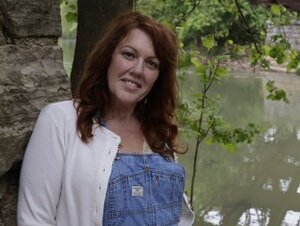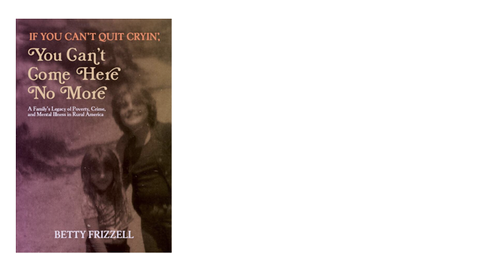Hamptons Whodunit: Betty Frizzell Casts Doubt on Sister's Murder Conviction

On May 12, 2013, 48-year-old Vicky Isaac of rural Puxico, Missouri called 911 and confessed to shooting her violent addicted husband, Chris Isaac, 18 times, killing him while he slept in the trailer they shared with her adult son.
Case closed. She confessed to murder. Or did she have a greater motive for taking the blame?
No matter the motive, Vicky was tried, found guilty and is serving a life sentence and a consecutive 25-year sentence for armed criminal action at the Chillicothe Correctional Center in Missouri. But is the wrong person imprisoned for a murder she did not commit?
Enter Betty Frizzell, Vicky’s sister, with a distinguished career in law enforcement. She maintains Vicky confessed to protect the real murderer, her mentally disturbed son, Kenny Smith. It has been documented that five days before the murder, Smith called 911 and said he would kill his mother, father and himself.
He went into a mental institution for three of those five days. On the fourth day, he got out and within 24 hours his father was dead. This case will be explored in the Hamptons Mystery & Crime Festival panel discussion “My Sister Is No Killer: A True Story of Justice” on Friday, April 14 at 6–6:50 p.m. at BookHampton, 41 Main Street, East Hampton with author Betty Frizzell and host David Wedge.
The Netflix series I Am a Killer in 2022 explored Isaac’s case and Frizzell’s investigation. Frizzell declares the odds are against her sister in Missouri.
“The governor of Missouri thinks if he pardons anybody, he will be seen as weak on crime,” she says. “The former attorney general and the new one are notorious about keeping people in prison. It was great for me to bring in the law enforcement because Missouri authorities had tunnel vision. They had a confession, opioids were involved, these people were white trash. We’re done. Case closed, let’s go home and eat dinner, boys.
“No, that’s not what happened,” insists Frizzell who believes her sister falsely confessed to the murder and gives credence to this in her 2021 memoir You Can’t Quit Cryin’, You Can’t Come Here No More: A Family’s Legacy of Poverty, Crime and Mental Illness in Rural America. She details her sister’s history of abuse first from an alcoholic mother and a father who was an absence in her life, then from a long line of failed relationships.
“My sister is her own worst enemy,” Frizzell says. “Why would she falsely confess to a crime? You can understand a mother’s love and a mother’s protection. But when you have someone who has been the literal whipping boy their whole life and has been taught that is their role, then they live that life.”
Vicky was pregnant at 17 with her son, Kenny, whose father was abusive and left before the child was born. She suffered from mental health problems, learning disability and experienced hallucinations. Then Chris Isaac came into her life. He was a wrestler, hurt his ankle in the ring and started taking opioids prescribed for Vicky.
“Vicky had a stroke one year prior to the murder and her opioid-addicted husband was taking her pills, the pain meds she had for her stroke,” Frizzell explains.
That’s when Chris started becoming violent toward Vicky, causing her to live in fear of him. Frizzell, who had long since moved to Seattle, returned to rural Puxico to investigate her sister’s case. She had to prove everything so she got police reports on Kenny, did an investigation dating back two years before the murder and found that he was diagnosed with homicidal ideation.
“He had a mental health condition and authorities never notified the family because of HIPAA,” Frizzell says. “Two years prior to the murder, his violence escalated. His personality altered and other personalities took over. He actually did a deposition for my sister’s trial with an Irish accent as verified in the court record.”
On the day of Vicky’s sentencing, Frizzell made plans with Kenny to take him there, but he disappeared.
“I called homeland security and discovered he got on a plane the day of the sentencing and flew to Rome,” Frizzell says. “I contacted the authorities there to find he has been in a Rome hospital since January and this was December, got gangrene and had both feet amputated. They planned to kick him out of the country and I said put him on a plane to Frankfurt, Germany, to Portland to here. He eluded authorities while in transport and disappeared into the German homeless community. We contacted German authorities who said they hadn’t seen Kenny in six months. I flew over there, did some police work and found him in three days. I brought him to our house and one morning he shouted, ‘You know…you’ve known all along!’” Frizzell recalls, “I said, ‘Yes, I know you killed Chris and Vicky’s taking the blame for it!’ It was like the wind got knocked out of him.”
Kenny is now in a mental institution in Seattle. It is of note that during her closing statement on the Netflix episode, Vicky faltered and expressed doubt over her previous statement that she was responsible for killing Isaac. Next, Frizzell intends to seek habeas corpus, going the federal route with Vicky’s case. And Frizzell is fighting to give voice to the voiceless and deliver justice for Vicky.
“We need rural criminal justice reform,” she affirms. “My sister’s case is not the exception, it’s the rule of what can happen to uneducated, low-income, poverty-stricken women. That’s what I’d like to bring to the Hamptons audience to let them see that criminal justice reform is not just in the urban areas. There are problems in the rural areas as well.”
For tickets and more information visit hamptonswhodunit.com




